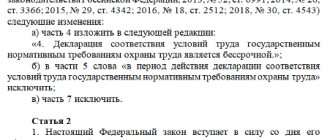Article 100 of the Labor Code of the Russian Federation establishes the working hours.
According to the norms of the Labor Code, the essence of this concept means the distribution of labor time during the accounting period, that is, the period when a working person is obliged to be at his workplace and perform the duties of his position in such a way as to be able to rest and recover.
According to current standards, several types of labor regulations can be distinguished:
- General routine. It is typical for most organizations. Its essence is that workers are given the same length of work time during the day and week, as well as an equal number of days for rest and recovery.
- Special routine. This is established in companies with specific types of activities, for example, those operating continuously. In some organizations, certain categories perform their duties outside the total duration of work. This schedule provides several options:
— Irregular mode. Consists of periodically performing duties after the end of the main working hours. This condition is stipulated initially when a person is appointed to a position.
- Flexible schedule. In this case, the minimum duration of work during the day is indicated. The beginning and end of work is determined by agreement between the parties to the agreement.
— Shift work principle. It consists in the fact that in different weeks, work is performed at different times of the day, determined by the internal schedule. Weekends in this case may not coincide with general ones.
— Dividing the work period into parts during the day.
— Shift work. In this case, the worker continuously performs his duties over a fairly long period, for example, for a month. Subsequently, he is given a period of rest and recovery of approximately the same duration.
Establishing a working regime in an organization
According to Part 1 of Article 100 of the Labor Code of the Russian Federation, the working mode can be established by such documents as:
- Internal regulations (IRR) in conjunction with a collective agreement or other agreements;
- An employment contract with an employee if his personal working regime differs from the generally established one in the organization.
According to Article 100 of the Labor Code of the Russian Federation, documents related to the regime regulate the following issues:
- The duration of the working week is 5 working days. days and 2 days off; 6 workers days and 1 day off; rotating weekends; less than a week.
- Designation of positions of employees with non-standard conditions. working hours (if any) and the type of compensation for such work.
- Duration of daily shift, including part-time shifts.
- Start and end hours of the work day.
- Number and time of breaks.
- Availability of daily shifts and their number per day.
- Dividing the day into parts (if necessary).
- Alternating working days and weekends with a rotating schedule.
Article 100 of the Labor Code of the Russian Federation also indicates that for citizens with a special nature of work, the work and rest regime is established in the manner determined by the Government of the Russian Federation. This standard lists as special categories of workers such as transport and communications workers. But this list is not closed. Federal executive authorities, by their orders, establish a working regime for a certain circle of specialists. For example, gold and precious metals miners have a special working regime. stones, workers of water patrol and military vessels, etc.
Article 104 of the Labor Code of the Russian Federation. Summarized working time recording
When, due to the conditions of production (work) of an individual entrepreneur, in an organization as a whole, or when performing certain types of work, the daily or weekly working hours established for a given category of workers cannot be observed, it is permissible to introduce summarized recording of working hours so that the working hours for the accounting period (month, quarter and other periods) did not exceed the normal number of working hours. The accounting period cannot exceed one year. The normal number of working hours for the accounting period is determined based on the weekly working hours established for this category of workers. For employees working part-time (shift) and (or) part-time week, the normal number of working hours for the accounting period is reduced accordingly. The procedure for introducing summarized recording of working time is established by the internal labor regulations.
Features of irregular work
An irregular day is a special work regime introduced for individual employees. Workers with abnormal conditions. schedule may, by decision of management, be involved in performing their duties outside of working hours (Article 101 of the Labor Code of the Russian Federation). So, for example, a nurse with a fixed irregular schedule may be involved in additional work. load after finishing your shift, if new patients suddenly arrive at the hospital. Since they need to be admitted and admitted to a hospital. Employees with irregular work schedules may be required to perform duties both before and after their official work shift. Obtaining the consent of the employee himself is not required. But systematic loading of additional work due to a complaint from an employee or an authorized body may be regarded by the supervisory service as overtime work. Compensation for overtime work is different from that for abnormal work. day. The inability to refuse to work outside of working hours is compensated by 3 (minimum) days of additional leave. And overtime work is paid in cash equivalent. Therefore, if an employee believes that he is too often and unreasonably involved in irregular work, then he can challenge the actions of management in court. Assigning employees to work outside of their scheduled hours without a clear need demonstrates management's abuse of discretion.
Working time planning
Of course, every manager wants his subordinates to work with maximum efficiency. To achieve this goal, companies use various methods of production statistics.
Control and analysis of the use of working time is an important tool in the work of the HR and accounting departments of each enterprise. It allows you to assess how effective the work regime established for employees is and whether it allows them to achieve high productivity. Also for this purpose, a working time balance is compiled and used (for 2021, for example). This is a kind of table that indicates the distribution of calendar days and hours and their use by employees. Based on this balance, a system of indicators characterizing the use of time is calculated. For example, the coefficient of use of working time allows you to assess how the enterprise uses labor resources and what are the conditions for fulfilling the main labor plan. Some organizations also conduct working time tracking (a sample is not provided in this article, since the topic is too broad), the results of which are subsequently used not only to analyze the activities of employees, but also to assess their effectiveness and productivity.
Registration of an employee with an irregular schedule
Registration of an employee with an abnormal position. The schedule occurs in the following order. Before concluding an agreement, the future employee studies local regulations. acts of the company and a list of positions for which non-standard conditions are provided. mode. He must also be familiar with the type and amount of compensation for this special work regime. Then the work is signed. an agreement that necessarily contains a condition on working outside the generally established norms (Article 57, Article 100 of the Labor Code of the Russian Federation). It is very important that the position of the employee being hired is included in the list of positions with non-standard conditions. schedule. Otherwise, an employee who refuses to perform work in this mode will not be held accountable, even if he is at work. The contract will contain a note about non-standardization. day. After signing the contract, an order for employment is issued. In it, in the column “nature of work”, a note about a special regime is also placed. The employee’s work book and personal card are filled out without any special notes. Not normal. the day can be set not only for a newly hired employee. Management may need to involve an “old” employee who is already officially registered in the organization to work under a special regime. The manager can do this in two cases:
- when transferred to another position;
- when including an employee’s position in the list of positions with non-standard conditions. schedule.
In order to transfer an already working employee to an irregular day, the employer needs:
- allow him to familiarize himself, against signature, with the local documents of the company and the list of positions to one of which he is being transferred (if he was not familiar with them earlier when applying for a job);
- sign additional agreement to labor a contract in which the changed conditions, new working hours and the duration of additional leave should be noted;
- issue an order to approve the non-norm. schedule for a specific employee or order for transfer to another position;
- make additions to the employee’s personal card regarding the duration of paid leave in order to calculate the total number of vacation days.
Changes are not recorded in the work book.
Regulations of working time and rest time
The law prohibits the use of regimes that violate normal working hours. What is its standard duration is a question that interests both personnel officers and employees.
The general weekly work rate is 40 hours (Article 91 of the Labor Code of the Russian Federation), and rest time must be at least 42 hours. For certain categories of workers, other, more stringent standards are provided. For example, disabled people of groups I and II can work no more than 35 hours a week.
Let's talk about working hours in 2021 in Russia. Its norms:
- the number of working days in 2021 with a five-day week is 247;
- the number of rest days and holidays in 2021 according to the production calendar is 118;
- the annual norm for a 40-hour work week is 1970 hours.
End of the working day
First, you need to look at what conditions regarding working time and rest time are stipulated in your employment contract. Is there any mention there that you work on irregular working hours?
It is possible that the employment contract will not indicate either the working hours or the provision for irregular working hours. If the employment contract does not indicate the working hours, this means that you work under conditions that do not differ from the general rules of this employer. In this regard, you need to familiarize yourself with the internal labor regulations, which set out the working hours and rest periods.
If the employment contract or internal regulations contain an indication of an irregular working day for your position, this means that by order of the employer, if necessary, occasionally you may be involved in the performance of your labor functions outside the working hours established for you (Article 101 of the Labor Code of the Russian Federation ). However, for this, the employer is obliged to provide 3 paid days of vacation.
If neither the employment contract nor the rules indicate an irregular working day, in this case you can be involved in overtime work only in accordance with Articles 99, 152 of the Labor Code of the Russian Federation - that is, with your written consent and subject to payment:
Article 99. Overtime work
(as amended by Federal Law No. 90-FZ of June 30, 2006)
Overtime work is work performed by an employee at the initiative of the employer outside the working hours established for the employee: daily work (shift), and in the case of cumulative accounting of working hours - in excess of the normal number of working hours for the accounting period.
An employer's involvement of an employee in overtime work is permitted with his written consent in the following cases:
1) if necessary, perform (finish) work that has begun, which, due to an unforeseen delay due to technical production conditions, could not be performed (finished) within the working hours established for the employee, if failure to complete (unfinished) this work may result in damage or destruction of property the employer (including the property of third parties located at the employer, if the employer is responsible for the safety of this property), state or municipal property, or create a threat to the life and health of people;
2) when carrying out temporary work on the repair and restoration of mechanisms or structures in cases where their malfunction may cause the cessation of work for a significant number of workers;
3) to continue work if the replacement employee fails to appear, if the work does not allow a break. In these cases, the employer is obliged to immediately take measures to replace the shift worker with another employee.
An employer’s involvement of an employee in overtime work without his consent is permitted in the following cases:
1) when carrying out work necessary to prevent a catastrophe, industrial accident or eliminate the consequences of a catastrophe, industrial accident or natural disaster;
2) when carrying out socially necessary work to eliminate unforeseen circumstances that disrupt the normal functioning of centralized hot water supply, cold water supply and (or) sewerage systems, gas supply systems, heat supply, lighting, transport, communications;
(as amended by Federal Law dated December 7, 2011 N 417-FZ)
3) when performing work the need for which is due to the introduction of a state of emergency or martial law, as well as urgent work in emergency circumstances, that is, in the event of a disaster or threat of disaster (fires, floods, famine, earthquakes, epidemics or epizootics) and in other cases, threatening the life or normal living conditions of the entire population or part of it.
In other cases, involvement in overtime work is permitted with the written consent of the employee and taking into account the opinion of the elected body of the primary trade union organization.
Pregnant women, workers under the age of eighteen, and other categories of workers are not allowed to work overtime in accordance with this Code and other federal laws. Involvement of disabled people and women with children under three years of age in overtime work is allowed only with their written consent and provided that this is not prohibited for them due to health reasons in accordance with a medical report issued in the manner established by federal laws and other regulations legal acts of the Russian Federation. At the same time, disabled people and women with children under three years of age must be informed of their right to refuse overtime work upon signature.
The duration of overtime work should not exceed 4 hours for each employee for two consecutive days and 120 hours per year.
The employer is required to ensure that each employee's overtime hours are accurately recorded.
Article 152. Payment for overtime work
Overtime work is paid for the first two hours of work at least one and a half times the rate, for subsequent hours - at least twice the rate. Specific amounts of payment for overtime work may be determined by a collective agreement, local regulations or an employment contract. At the request of the employee, overtime work, instead of increased pay, can be compensated by providing additional rest time, but not less than the time worked overtime.
(as amended by Federal Law No. 90-FZ of June 30, 2006)
Part two is no longer valid. — Federal Law of June 30, 2006 N 90-FZ.
Work performed in excess of normal working hours on weekends and non-working holidays and paid at an increased rate or compensated by providing another day of rest in accordance with Article 153 of this Code is not taken into account when determining the duration of overtime work subject to payment at an increased rate in accordance with part one of this article.
(part three introduced by Federal Law dated June 18, 2017 N 125-FZ)








